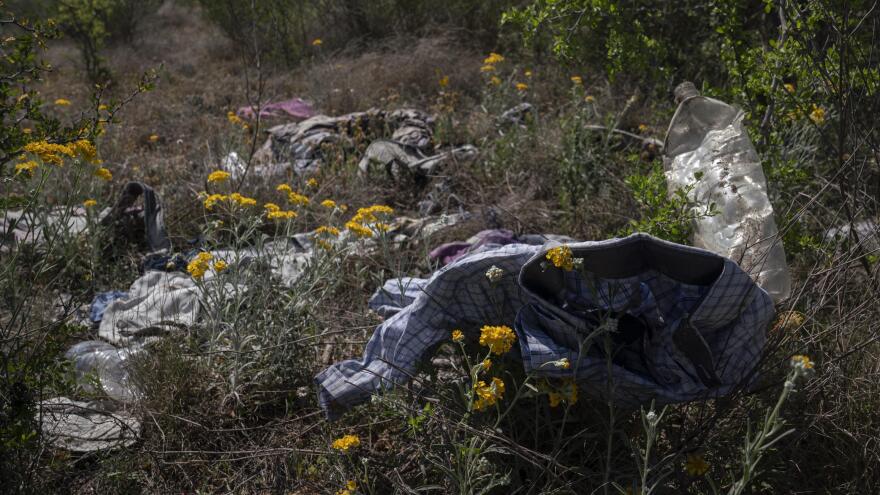Hugh Fitzsimons is a rancher and writer. He raises bison at the Shape Ranch in the southwestern part of Dimmit County, about 10 miles away from the Mexican border, north of Laredo, Texas. He considers his ranch a world apart from the two nations divided by the Rio Grande.
"[It is] another country — that's what this borderland is all about. It is not the United States, and it is not Mexico. It is a transitional land," he said.
Fitzsimons grew up on the ranch. He said one thing you should never do is come to someone's home after dark.
Several years ago, someone did exactly that. It was a cold and rainy night.
That's what I want to see a candidate talk about. Let the good people in, keep the bad people out. How complicated is that?
"I had a shotgun with me, and I leveled the shotgun at him when I opened the door, asked him what he wanted, and he said 'just water' was all he wanted," he said. "I looked him in the eye and I thought to myself, 'This man is not going to bring me any harm.' "
Fitzsimons lowered his shotgun. He remembers that at that moment, the man fell to the ground and began crying.
"It became starkly apparent to me at that time that we don't take the time to really put ourselves in each other's shoes," he said.
It's a bright sunny Tuesday morning, and Fitzsimons is ready for a drive. He had heard from one of his employees that migrants left behind some of their belongings in a thicket.
After a few minutes of driving past rows of olive trees, he arrived at the spot, stepped from the truck and walked towards the debris. Fitzsimons walked slowly and steadily, keeping an eye out for any rattlesnakes, and towards a pile of discarded backpacks, clothes, toiletries and other items left behind by migrants.
When asked if he gets nervous walking alone on his thousands of acres of ranch land, he joked, "I do, but my Colt-45 does not."
"Once they make it across [the border] and they jettison all of this, then they will try to get picked up on the county road," he explained.
This isn't the first time Fitzsimons has come across piles of discarded items left behind by migrants on his property. He said he's even seen syringes among the debris.

"Those syringes are for people who might go into some sort of renal failure from lack of water or dehydration," he said. "Seeing those syringes, I think, made a greater impression on me than anything."
Fitzsimons reviewed the pile, then walked back to his truck and drove home.
Fitzsimons said he's not a fan of the idea of having a border wall. He wants the government to implement a guest worker program for migrants. He considers that to be a real solution to the immigration issue.
"That's what I want to see a candidate talk about," he said. "Let the good people in, keep the bad people out. How complicated is that?"
Copyright 2020 Texas Public Radio. To see more, visit .


